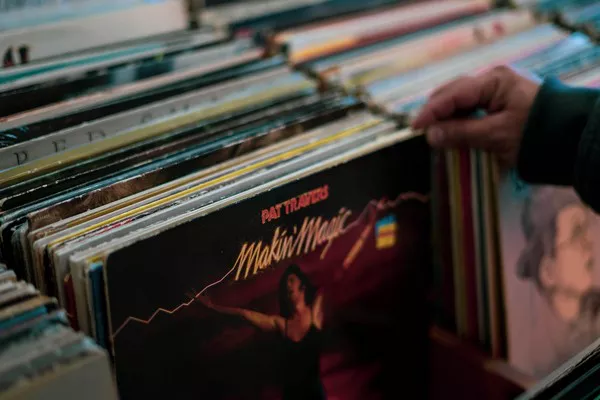In today’s fast-paced world, where stress and sleeplessness often plague individuals, the quest for a restful night’s sleep has led many to explore alternative methods beyond traditional sleeping pills. Among these alternatives, the soothing power of music has emerged as a compelling solution. The question that arises is, “Is listening to music better than taking sleeping pills?” This debate has intrigued researchers, sleep experts, and individuals seeking effective sleep aids. Exploring the scientific evidence, the psychological impact, and the comparative advantages of music and sleeping pills can offer valuable insights into choosing the most suitable remedy for improving sleep quality.
Understanding the Science Behind Sleep and Music
Sleep is a complex physiological process vital for overall well-being, involving various stages that contribute to physical restoration and mental rejuvenation. Sleep disorders affect a significant portion of the global population, leading to widespread interest in remedies such as sleeping pills and music therapy. Researchers have delved into understanding how music impacts the sleep cycle and have found compelling evidence supporting its effectiveness.
Studies have shown that music has a profound impact on the autonomic nervous system, influencing heart rate, blood pressure, and the release of stress hormones. Relaxing music, particularly classical, ambient, or nature sounds, can trigger the parasympathetic nervous system, promoting a state of relaxation conducive to falling asleep. Conversely, sleeping pills, though designed to induce sleep, can have side effects ranging from grogginess to dependency and can disrupt the natural sleep architecture.
The Psychological Impact: Music versus Sleeping Pills
Beyond the physiological effects, the psychological impact of both music and sleeping pills is crucial in evaluating their efficacy as sleep aids. Music has long been acknowledged for its ability to evoke emotions, soothe the mind, and create a conducive environment for relaxation. The subjective experience of listening to calming melodies aligns with cognitive-behavioral techniques used in treating insomnia, focusing on relaxation and reducing arousal levels before bedtime.
In contrast, the psychological impact of sleeping pills involves altering brain chemistry to induce sleep artificially. While effective in the short term, dependency, tolerance, and rebound insomnia can develop over prolonged usage, potentially exacerbating sleep problems. Moreover, the emotional and psychological aspects of sleep, including anxiety and stress, may remain unaddressed by pharmaceutical sleep aids, whereas music can serve as a holistic remedy by addressing these factors.
Comparative Advantages of Music and Sleeping Pills
Comparing the advantages of music and sleeping pills unveils distinct factors that influence their effectiveness in promoting quality sleep. One significant advantage of music therapy is its non-invasive nature and lack of adverse side effects when compared to sleeping pills. Sleep medications often come with a range of side effects, including daytime drowsiness, dizziness, and even memory problems, which can impact overall health and daily functioning.
Furthermore, music’s versatility allows individuals to personalize their sleep experience, selecting genres or tracks that resonate with their preferences and induce relaxation. This customization contributes to a more tailored approach to improving sleep quality, enhancing its appeal over standardized pharmaceutical solutions.
Another advantage of music over sleeping pills is its potential for long-term sustainability. While sleeping pills might offer immediate relief, reliance on them can lead to tolerance and dependence, necessitating increased dosages for the same effect. In contrast, music therapy has no known risk of dependency and can be integrated into one’s nightly routine as a sustainable, non-habit forming method for promoting restful sleep.
The Role of Individual Variability and Preferences
Understanding that individuals respond differently to sleep interventions is crucial in assessing whether music or sleeping pills may be more effective for a person. Factors such as personal preferences, sleep disorders, underlying health conditions, and lifestyle choices can significantly influence the efficacy of sleep aids. For instance, individuals with chronic insomnia or severe sleep disturbances may find that sleeping pills offer initial relief, while others may experience better results with music therapy due to its natural and non-invasive nature.
Moreover, individual preferences play a pivotal role in determining the effectiveness of these interventions. Some individuals may find solace in the rhythmic beats of instrumental music, while others may prefer white noise or nature sounds to lull them into a peaceful slumber. This variance in preferences underscores the importance of a personalized approach to sleep management, allowing individuals to choose the method that resonates best with their needs and preferences.
Addressing Sleep Hygiene and Lifestyle Modifications
While the debate between music and sleeping pills continues, it’s essential to acknowledge the broader context of sleep hygiene and lifestyle modifications that can complement these interventions. Establishing a consistent sleep schedule, creating a comfortable sleep environment, limiting caffeine intake, and engaging in relaxation techniques are crucial components of good sleep hygiene.
Moreover, lifestyle modifications, such as regular exercise, stress management strategies, and mindfulness practices, can significantly impact sleep quality. Integrating these practices alongside music therapy or, in some cases, sleeping pills, can enhance the overall effectiveness of sleep interventions and contribute to sustainable improvements in sleep patterns.
Conclusion
In conclusion, the question, “Is listening to music better than taking sleeping pills?” prompts a nuanced exploration of the multifaceted aspects of sleep interventions. While both music therapy and sleeping pills offer potential solutions for sleep disturbances, music stands out as a promising alternative due to its natural, non-invasive nature and minimal adverse effects. Its psychological impact, individual customization, and potential for long-term sustainability position it as a viable option for improving sleep quality.
However, acknowledging the variability in individual responses and preferences is crucial. For some, especially those with severe sleep disorders, short-term use of sleeping pills may be necessary under proper medical guidance. Nevertheless, integrating music therapy into sleep routines, coupled with lifestyle modifications and good sleep hygiene practices, can serve as a holistic approach to achieving restful and rejuvenating sleep, contributing to overall health and well-being. Ultimately, the choice between music and sleeping pills should align with an individual’s needs, preferences, and in consultation with healthcare professionals to ensure the most suitable and effective approach to addressing sleep disturbances.


























